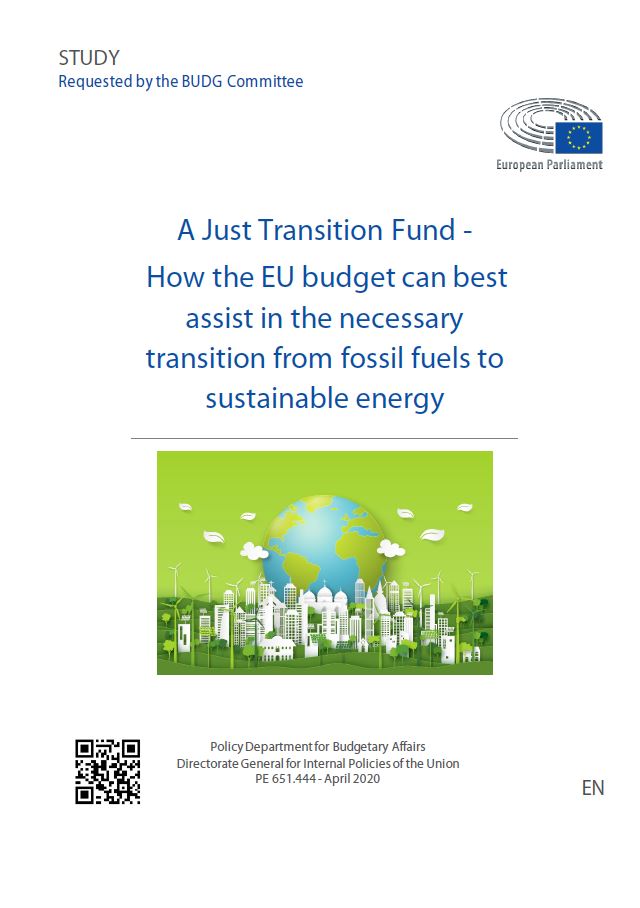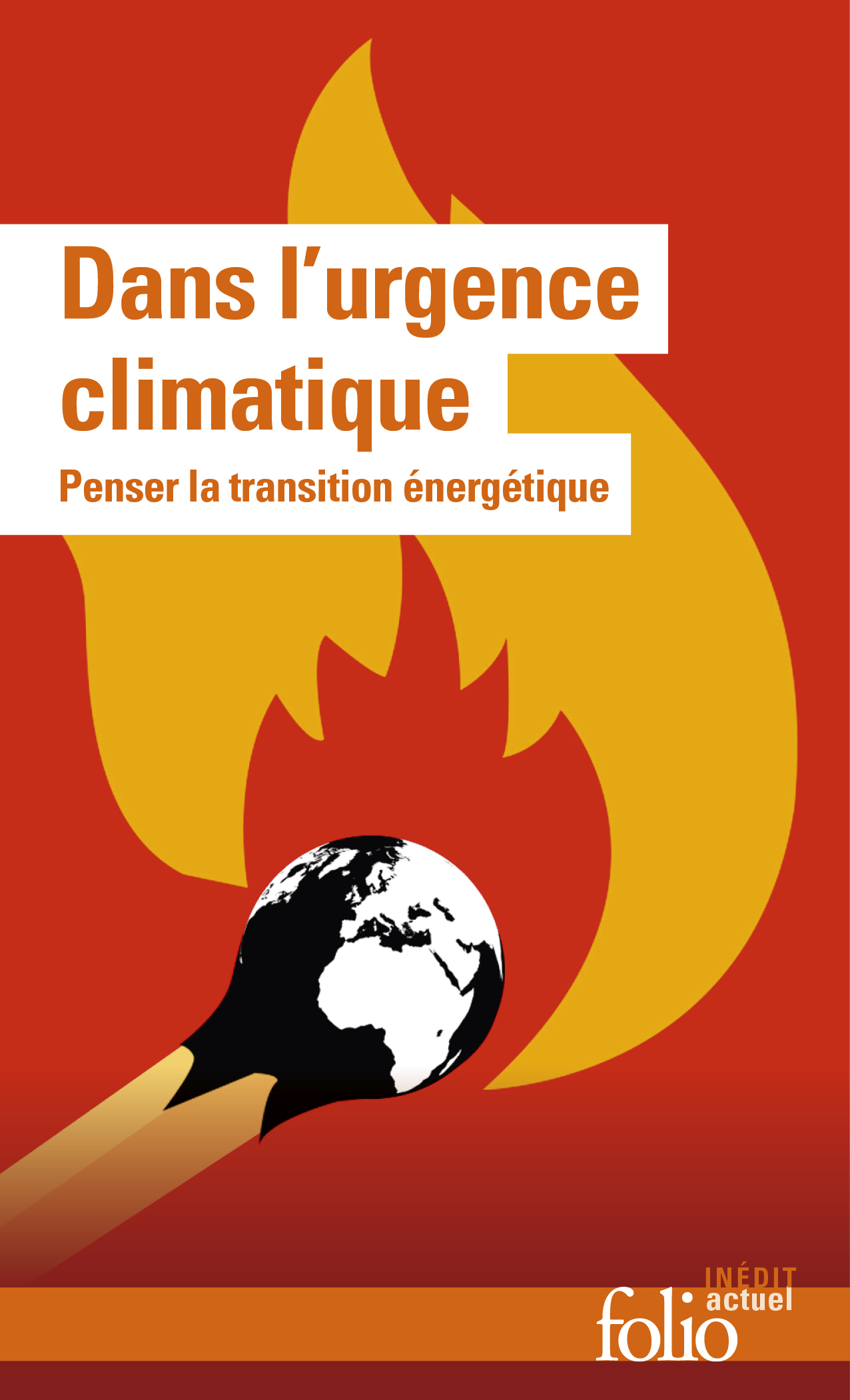External Publication
A Just Transition Fund – How the EU budget can help with the transition
On 14 January 2020, the European Commission published its proposal for a Just Transition Mechanism, intended to provide support to territories facing serious socioeconomic challenges related to the transition towards climate neutrality. This report provides a comprehensive analysis of how the EU can best ensure a ‘just transition’ in all its territories and for all its citizens with the tools at its disposal. It provides an overview and a critical assessment of the Commission's proposal, and suggests possible amendments based on best practices from other just-transition initiatives.
This study was prepared for the European Parliament’s Committee on Budgets. The original paper is available on the European Parliament’s webpage.
© European Union, 2020
EXECUTIVE SUMMARY
Background
President von der Leyen’s Commission has made the ambitious commitment of making Europe the first climate-neutral continent while ensuring that the transition to this new green growth model is just and fair for all European Union citizens and territories. The climate policies enacted by the EU will have an uneven impact on European regions, communities, sectors and workers, which is why they need to be accompanied by social and economic policies to ensure no one is left behind.
On 14 January 2020, the Commission published its proposal for a Just Transition Mechanism (JTM), in the framework of the European Green Deal policy package. The aim of the JTM is to provide support to territories facing serious socio-economic challenges related to the transition to climate neutrality. This initiative is composed of three pillars: a new Just Transition Fund (JTF), the use of a fraction of InvestEU financing for climate objectives and the creation of a public sector loan facility at the European Investment Bank, partly guaranteed by the EU budget.
The JTF will be funded with EUR 7.5 billion of ‘fresh money’ from the EU budget, to be complemented by transfers from Member States’ European Social Fund Plus (ESF+) and European Regional Development Fund (ERDF) envelopes, and by national co-financing. All Member States are eligible for the JTF, following the approval of their Territorial Just Transition Plans by the Commission. Following approval, funds are pre-allocated at the national level. Projects eligible for financing include projects aimed at social support/retraining, economic revitalisation and land restoration.
Aim
The aim of this study is to give a comprehensive analysis of how the EU can best ensure a ‘just transition’ in all its territories and for all its citizens with the tools at its disposal. We first describe what an EU just transition instrument should ideally do, looking into the challenges it should address, best practices from other just-transition initiatives around the world and the key policy instruments it should include. Second, we present the tools the EU currently has at its disposal to support transitioning territories and describe the Commission’s proposal for a JTF. Finally, we assess this proposal based on the key policy objectives identified in our first section and suggest amendments for it to better meet its targets.
Main takeaways
- Based on best practices from other just-transition initiatives, we identify four key characteristics that are most important for a just transition: it must be locally driven, include targeted welfare and labour policies, be included in a long-term strategy for the decarbonisation and development of local economies, and allow for regular assessments and modifications.
- In the context of the EU, this translates into three key objectives for a just-transition instrument:
- Strong mechanisms to ensure social dialogue and the involvement of communities throughout the whole transition process
- Consistency with other EU programmes and policies
- The whole process should be structured based on clear phaseout goals and decarbonisation pathways consistent with the objective of climate neutrality by 2050
- The Commission’s proposed regulation for a JTF is generally seen as a positive step towards ensuring a just transition for all. We analyse the following points in the JTF regulation in our fourth section, and suggest changes that might be considered by policymakers:
- Scope and size of the JTF. Given its small size, the JTF will not realistically be able to tackle all the objectives of a just-transition initiative. As such, it might be worth considering reducing the scope of its eligible activities to focus on social support and retraining.
- Consistency with cohesion funds. We discuss the possibility of removing mandatory transfers from the ERDF and modifying the regulation so transition objectives are included more broadly in cohesion funds.
- Pre-allocation methodology. We reproduce the Commission’s pre-allocation calculations and discuss some elements which could be improved to ensure the transparency of this process and that real needs are accounted for.
- Granularity of data. Currently, the pre-allocation of funds is based on NUTS2-level data, but it might be worth considering using NUTS3-level data to better capture territorial needs and ensure consistency with Territorial Just Transition Plans.











